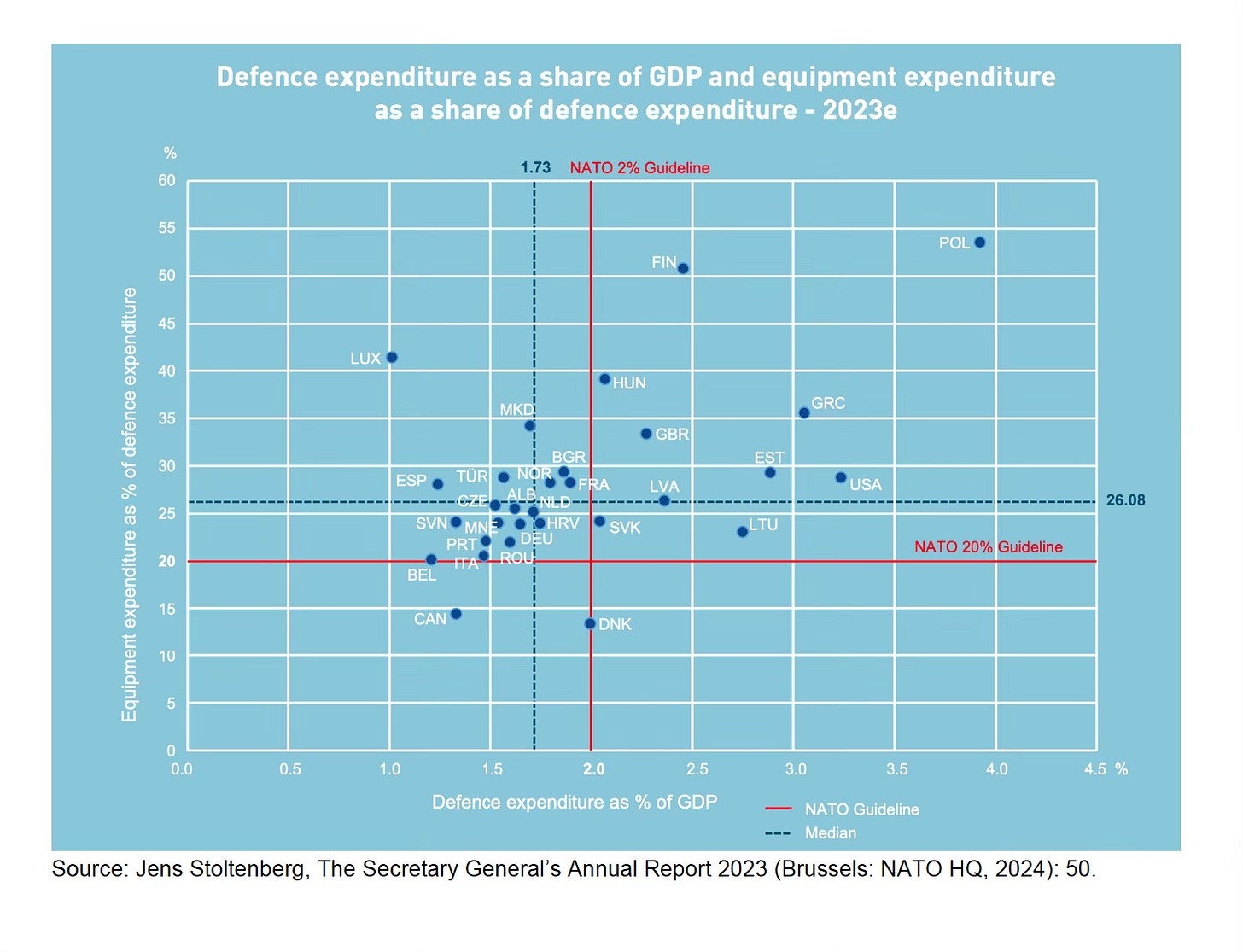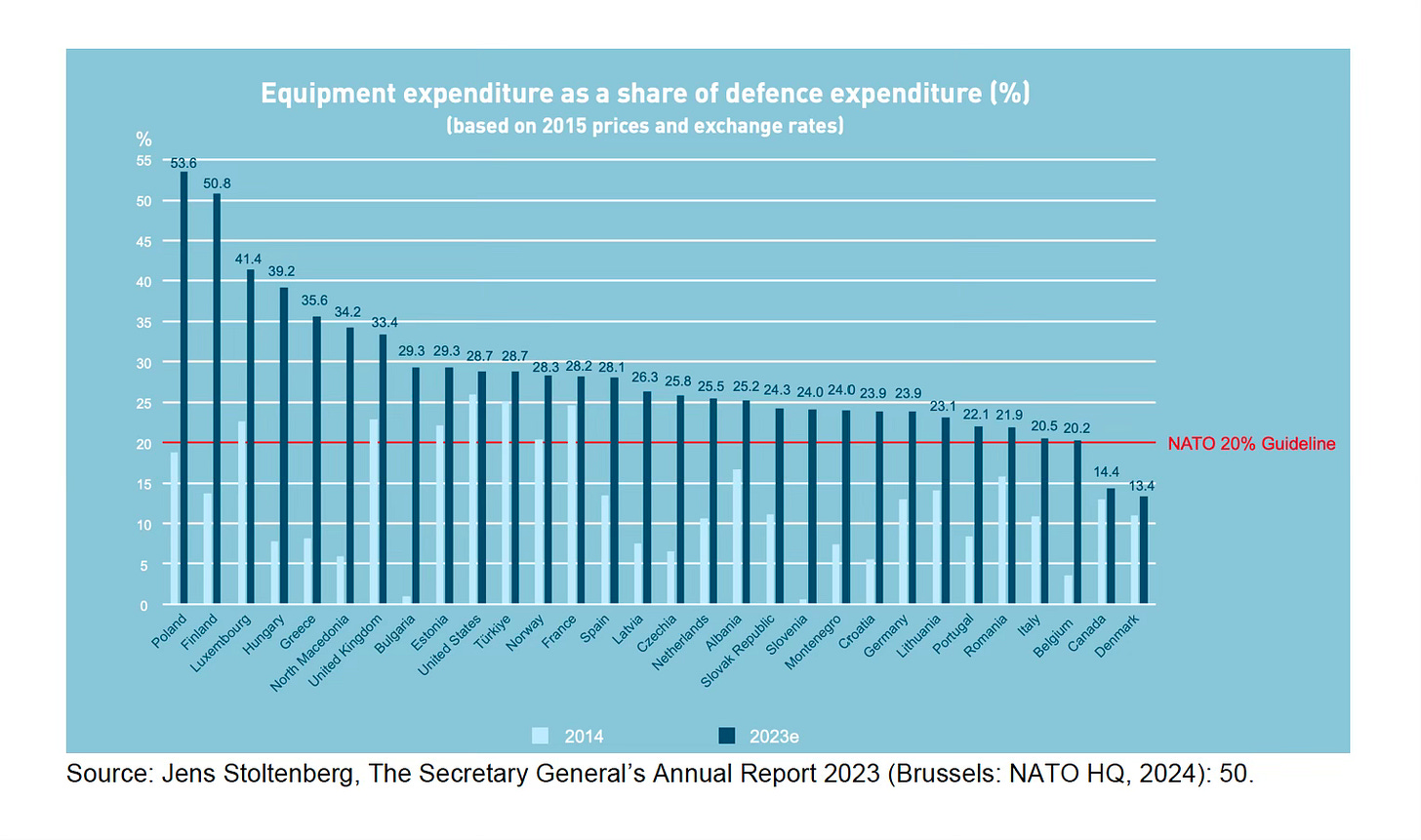More European defense” may be an effective political slogan, but it is a weak analytical category and a vague policy imperative.
Download the Policy Brief
From the Policy Brief:
From the previous tables, it is worth highlighting not only that both Europe’s total defense expenditure and share of GDP defense expenditure are significantly lower than the United States, but also Europe generally spends more on personnel while its procurement and (especially) research expenditures are significantly lower than the U.S. both in absolute and relative terms. The present discussion thus leads to the multiple and also potentially contradictory meanings that more European defense” can have:
More coordination/cooperation/integration of European countries’ defense policies, starting from their budgetary allocations;
More defense expenditure;
More expenditure in some allocations (like R&TDTE or procurement);
More collaborative European expenditure in some allocations (like procurement) to generate economies of scale;
More consolidation in some sources of expenditure to generate economies of scale or even reduce duplications (like procurement, but also personnel or infrastructures).
Insight: “More European defense” may be an effective political slogan, but it is a weak analytical category and a vague policy imperative. There are different ways to achieve more, different areas to achieve European and different realms of defense: one can decide to tackle them altogether, one step by step, or otherwise. However, more European defense means too many different things for immediate action.
The IEP@BU Mission
Founded by Bocconi University and Institute Javotte Bocconi, the Institute for European Policymaking @ Bocconi University combines the analytic rigor of a research institute, the policy impact of a think tank, and the facts-based effort of raising public opinion’s awareness about Europe through outreach activities. The Institute, fully interdisciplinary, intends to address the multi-fold obstacles that usually stand between the design of appropriate policies and their adoption, with particular attention to consensus building and effective enforcement.
The Institute’s mission is to conduct, debate and disseminate high-quality research on the major policy issues facing Europe, and the EU in particular, its Member States and its citizens, in a rapidly changing world.
It is independent from any business or political influence.
The IEP@BU Management Council
Catherine De Vries, Dean for International Affairs and Professor of Political Science at Bocconi University
Daniel Gros, IEP@BU Director
Sylvie Goulard, IEP@BU vice-President, Professor of Practice in Global affairs at SDA Bocconi School of Management
Silvia Colombo, IEP@BU Deputy Director
Carlo Altomonte, Associate Professor at Bocconi University and Associate Dean for Stakeholder Engagement Programs at SDA Bocconi School of Management
Valentina Bosetti, professor of Environmental and Climate Change Economics at Bocconi University
Elena Carletti, Dean for Research and Professor of Finance at Bocconi University
Eleanor Spaventa, Professor of European Union Law at Bocconi Law School















Share this post